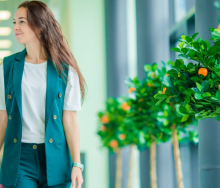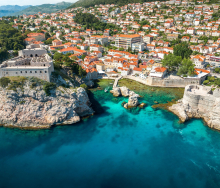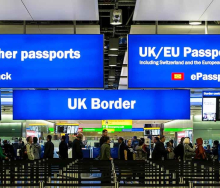Green investment in the tourism sector will not only protect natural assets but will also help to increase competitiveness and resilience in the industry.
Speaking during an event and panel discussion hosted by CapeNature in line with the theme of this year’s UNWTO International Tourism Month, ‘Tourism and Green Investments’, Minister Anton Bredell, MEC for Local Government, Environmental Affairs and Development Planning in the Western Cape said: “We need to ensure that the tourism sector delivers on its responsibilities as a solution to the climate emergency. The green transformation of the tourism sector is very much needed, not just for the planet, but also for tourism itself, for boosting competitiveness and increasing resilience.”
Illustrating the impact of green investment, Dr Razeena Omar, CEO of CapeNature, the government entity tasked with managing and maintaining provincial nature reserves, said they had seen a 43% year-on-year increase in tourism numbers and a 20% increase in revenue.
CapeNature has several ecotourism projects throughout its reserves, and green technology, building techniques and innovation have been at the centre of its developments. These include the highly popular Oudebosch Eco Cabins in the Kogelberg Reserve and a skywalk that is currently in the planning phase, which will provide guests at the Grootvadersbosch Reserve near Stellenbosch with a boardwalk stroll through the treetops.
CEO of the African Association of Visitor Experiences and Attractions, Mpume Mabuza, said ecotourism and sustainability were going to be critical, and sharing information and case studies like the work that CapeNature was doing with the rest of Africa would help further grow and develop the continent’s attractions and experiences.
Discussing the government’s role in facilitating green investment in tourism, Ilse van Schalkwyk, Chief Director in the Western Cape Department of Economic Development and Tourism, said government had to play a leadership role that involved a focus on developing policy and sustainability guidelines for different parts of the tourism value chain, and ways to incentivise and maximise green investment.
“Prosperity thrives on entrepreneurship and innovation and it's imperative that we foster a space where this can flourish,” said Bredell. “By increasing investments, particularly for our youth and women, we can catalyse new opportunities and innovations within the tourism sector.”
The panel also highlighted the importance of protecting South Africa’s natural assets and ensuring that communities were part of that process.
Sheraaz Ismael, Executive Director for Eco-Tourism and Access at CapeNature, said its tourism options allowed it to generate revenue and that profits could then be ploughed back into maintenance and conserving nature, allowing it to do its core mandate.
“It’s important to value the assets we currently have and to remember that the asset is there, to talk about it, to protect it and to ensure the future value of the asset,” said Wesgro Head of Leisure Tourism, Julia Louw.
Mabuza added that protecting these assets meant ensuring that people had access to tourism activities, no matter their socioeconomic status, allowing locals and communities to be custodians, protecting the environment, and becoming ambassadors.














